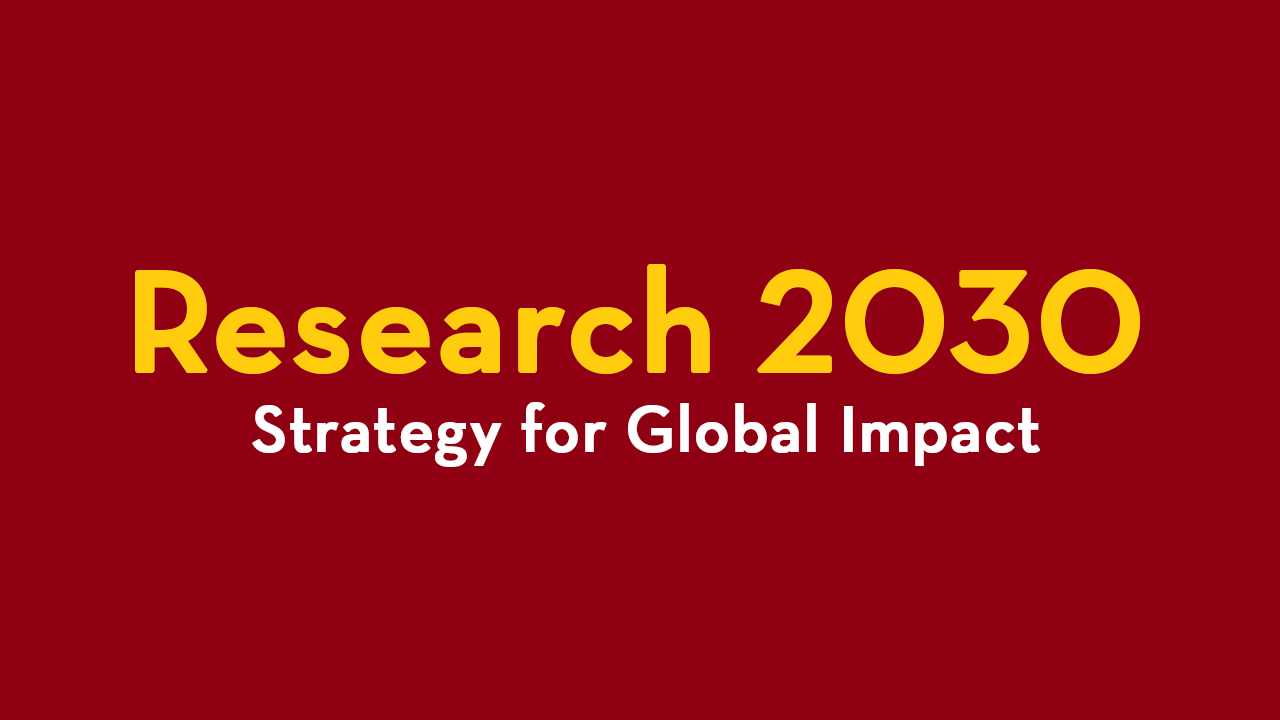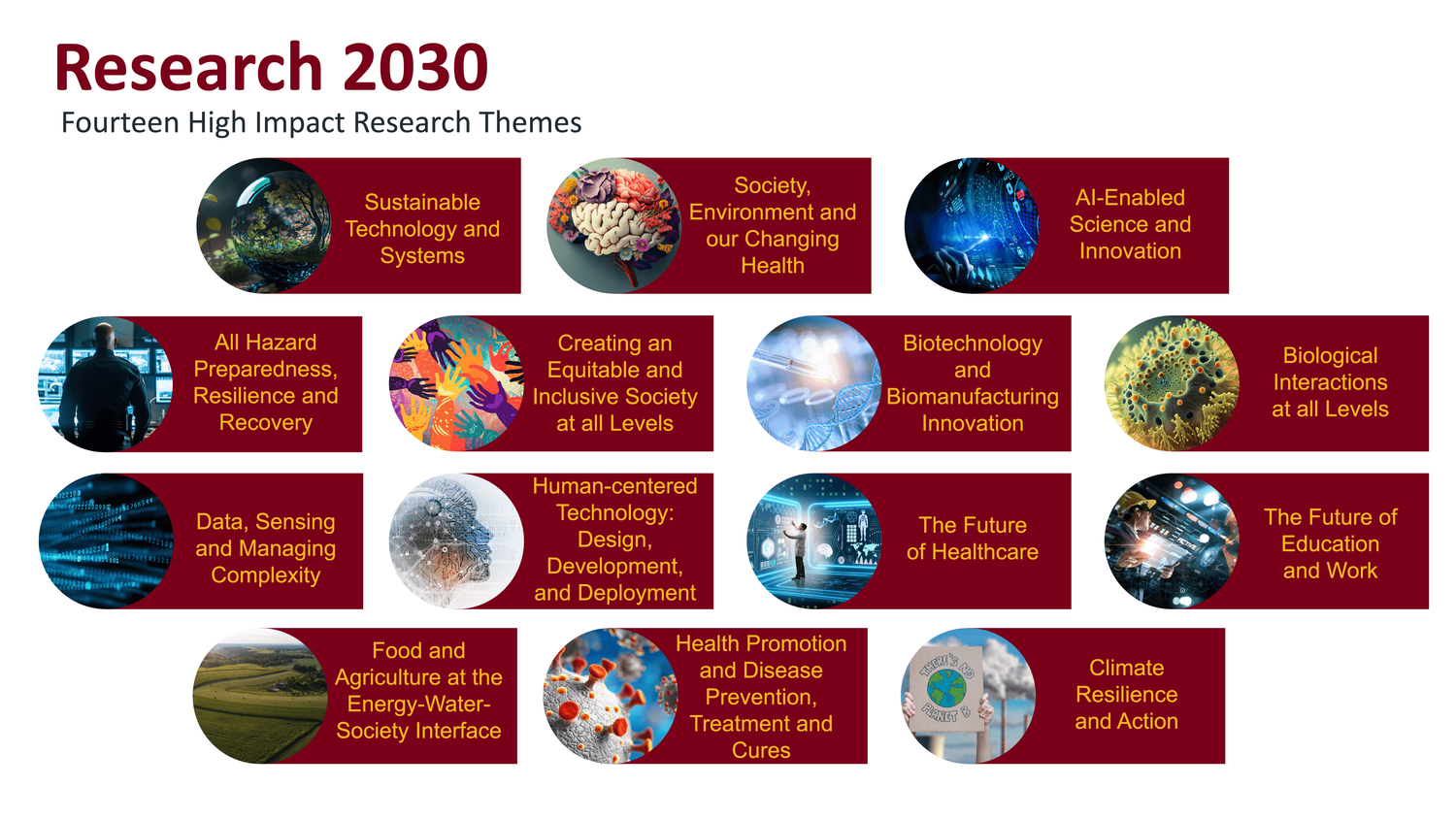
The University’s scale and breadth allow it to leverage many different disciplines and combine them in the pursuit of new knowledge in ways that many institutions cannot. To anticipate the trends in research and our society, this past spring UMN held a Research 2030 workshop, where the University research community, along with invited national leaders in academia, government, industry, and nonprofits, had a chance to reflect on what might be the big questions for research in the not-to-distant future—the year 2030.
These discussions have helped frame a research strategy into 14 high impact research themes for addressing new social, economic, and global challenges before they arise, and allow the University to lead rather than follow when it comes to the interests of our research community, as well as potential funders and partners.

Two initiatives are now underway based on the themes identified at the Research 2030 workshop, one related to biotechnology and biomanufacturing and the another based on geospatial information science for creating sustainable development goals driven policies:
A new Biotechnology and Biomanufacturing Innovation Center (BBIC) aims to catalyze innovative, cross-disciplinary research, entrepreneurship, and workforce development, building upon current strengths of the University, Minnesota’s abundant natural resources, and its well-developed agricultural, biomedical, and food industries, with an additional emphasis on climate resilience. BBIC will fund targeted seed grants to UMN researchers totaling $600K/year to stimulate research in biofuels, decarbonization and carbon storage/capture solutions, and recycling/upcycling of waste products. These efforts should strengthen competitiveness for future UMN faculty-led extramural grants, because they align closely with recently articulated federal research directions.
A second initiative aligns well with several of the high impact themes from Research 2030. The University’s global SDG Geodesign Consortium will foster global data-informed collaboration for achieving Sustainable Development Goals (SDGs). SDGs are a globally agreed-to framework for achieving a better and more sustainable future for our societies and our planet, and they inform many corporate responsibility programs, including those of 3M, Boston Scientific, Cargill, General Mills, Land O’Lakes, and Target. The University’s MPact 2025 plan includes SDGs as the institution’s key sustainability leadership measure. In partnership with Minnesota, US, and global partners, this new consortium will become a hub for data-informed solutions.
The Research 2030 themes will inform new initiatives that leverage UMN strengths, align with external funders’ priorities, and address global issues.